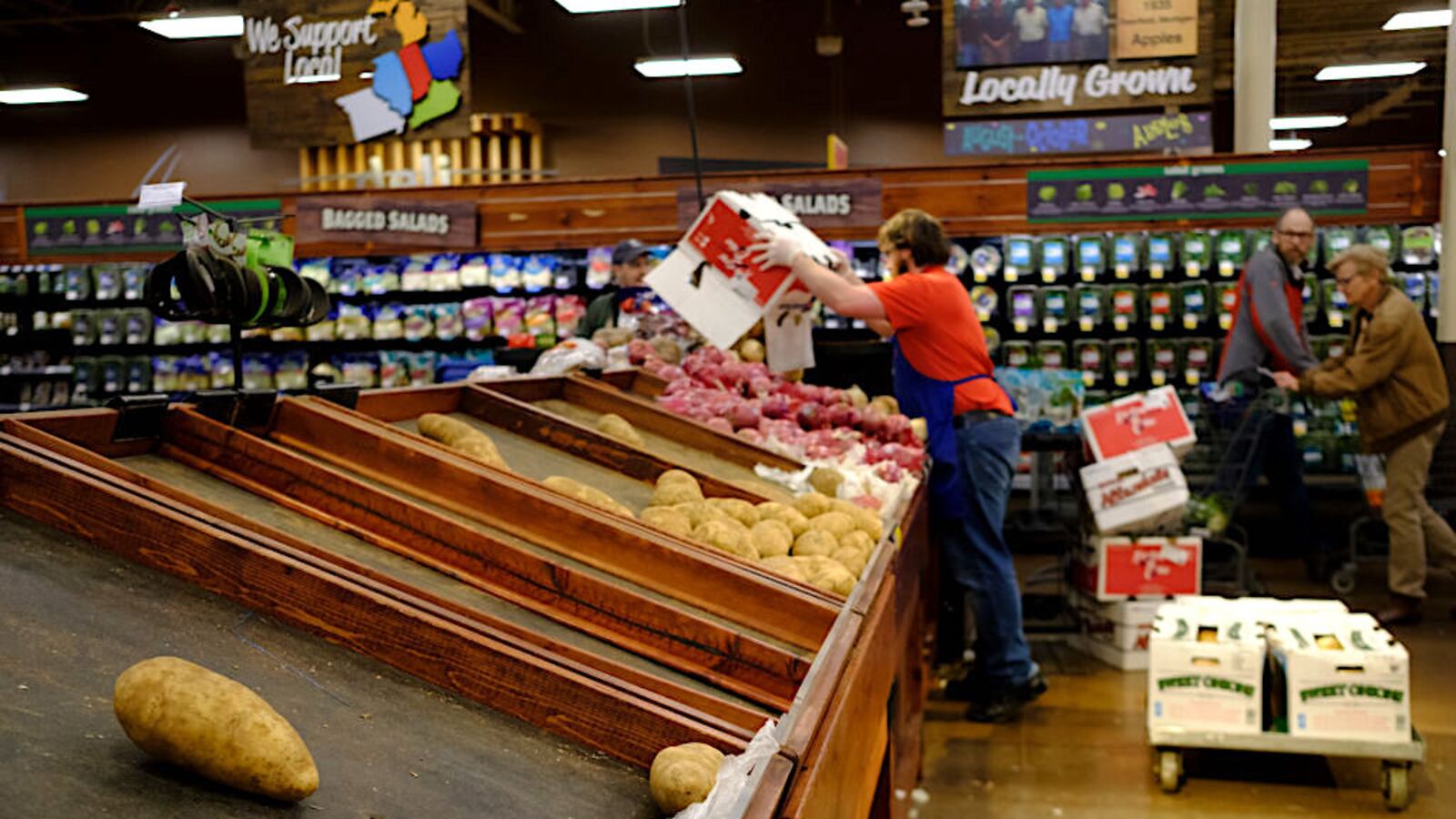Advocates are calling for grocery store and food processing workers to be eligible for the same emergency child care available to front-line medical workers.
As schools and child care centers closed in response to the coronavirus pandemic, state officials and early childhood groups launched an emergency child care system for essential workers. They included medical workers, staff at long-term care facilities, and police officers, among others. State officials estimated that 80,000 such workers have a child under 8 who needs care so that they can continue to work.
When Colorado Gov. Jared Polis issued a stay-at-home order Wednesday, he explicitly exempted grocery stores as “critical retail” that can remain open and allowed those employees to keep going to work. But the order didn’t automatically give grocery workers the same benefits that are available to health care workers and first responders. Those benefits include emergency child care and paid leave.
Designating grocery and food supply workers as essential would bring more than 20,000 employees statewide under that umbrella, among them cashiers, shelf-stockers and other hourly workers considered important in the fight against the coronavirus.
Representatives from the state grocery workers union, the United Food and Commercial Workers, and Coloradans for the Common Good, a coalition of unions, faith organizations, and civic groups, said they talked with Polis Tuesday about recognizing grocery workers as part of the “essential” category and that he was encouraging.
“The governor was very supportive of these workers,” said Jorge Montiel, lead organizer of Coloradans for the Common Good. “He said, ‘Well, of course, they should be included in all this.’”
Minnesota and Vermont have already made free child care available to grocery store workers.
What’s still unclear is whether Polis will release an executive order or statement officially deeming grocery store workers “essential” and eligible for benefits like emergency child care. His office did not immediately respond to a request for comment Wednesday afternoon.
The state’s emergency child care program, which started Monday, served about 900 children the first day with more expected going forward. It is free to essential workers this week and next week, with sliding scale fees possible in future weeks.
Advocates for grocery store workers said they look forward to seeing a policy change soon.
“We commend Governor Polis for taking steps to protect workers who are making additional sacrifices for us,” said Rev. Reagan Humber, pastor of House for All Sinners & Saints, in a press release. “But we’ve learned that unless these protections are clearly stated in policy, vulnerable workers will continue to suffer.”
Currently, the state’s emergency child care program lists eligible participants as health care workers, including janitorial staff, police officers, firefighters, EMTs, and staff at long-term care, mental health, and other residential facilities.
Montiel said grocery store workers may be more likely even than health care workers to mix with a wide swath of the general public these days.
“It just highlights the reality that they are really on the front lines,” he said. “We’re talking about removing all the obstacles that they may have to keep working and stay healthy.”


